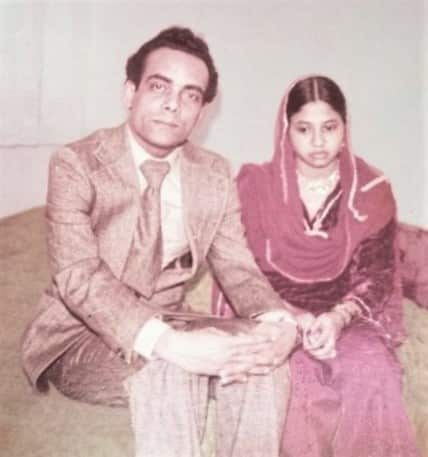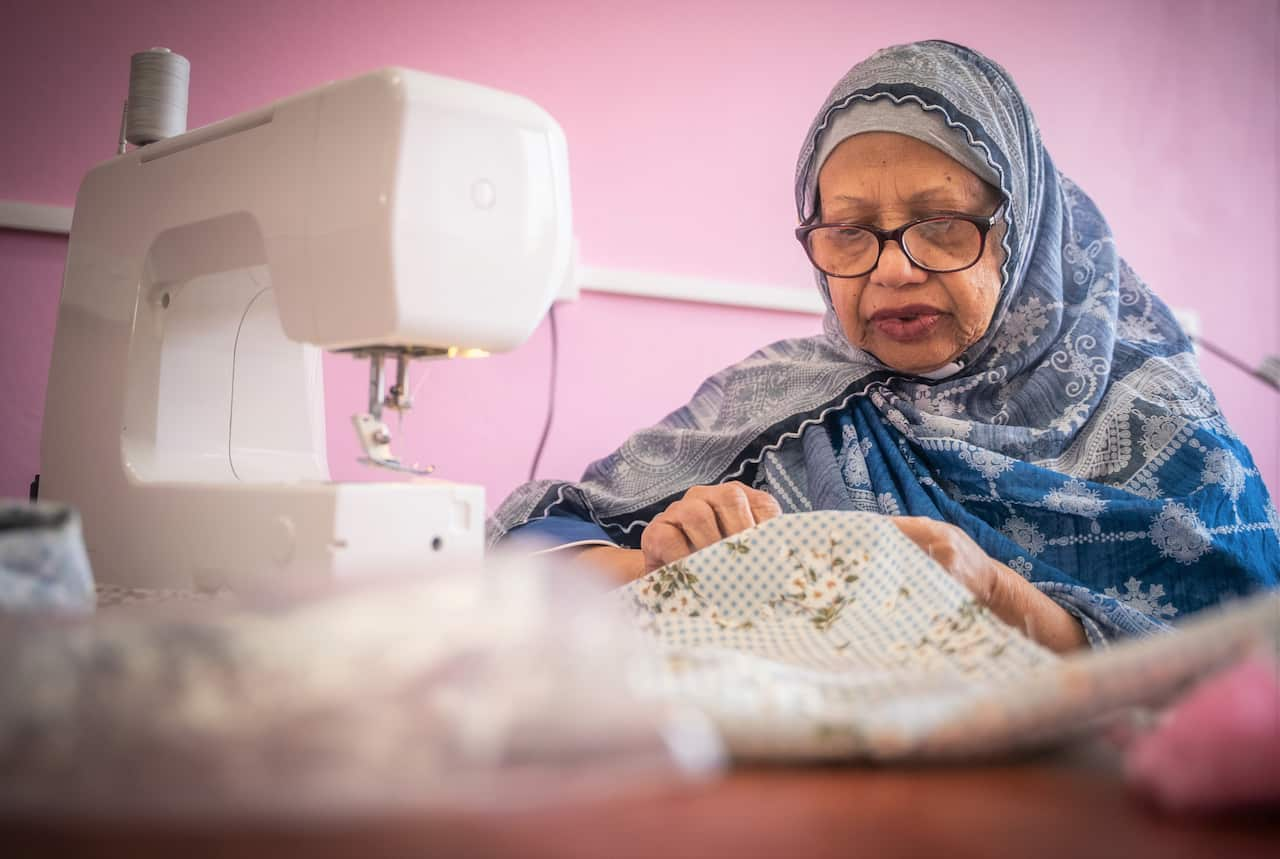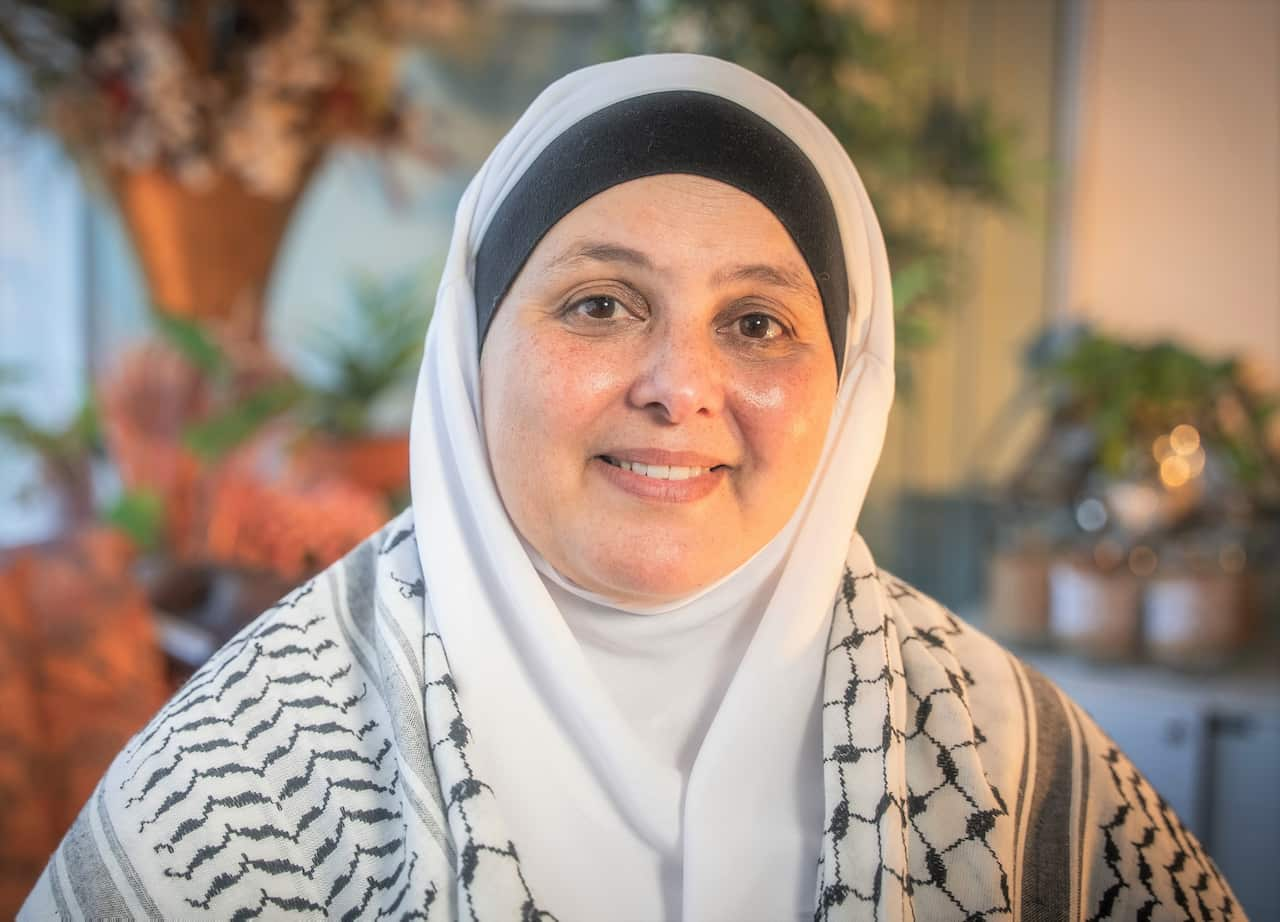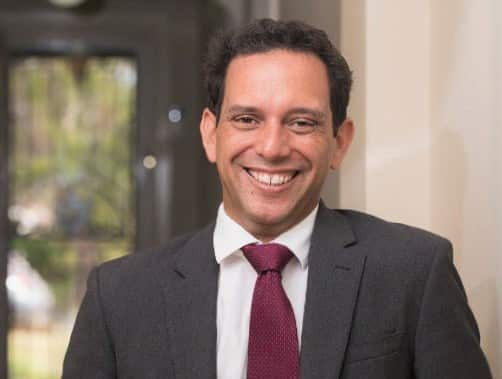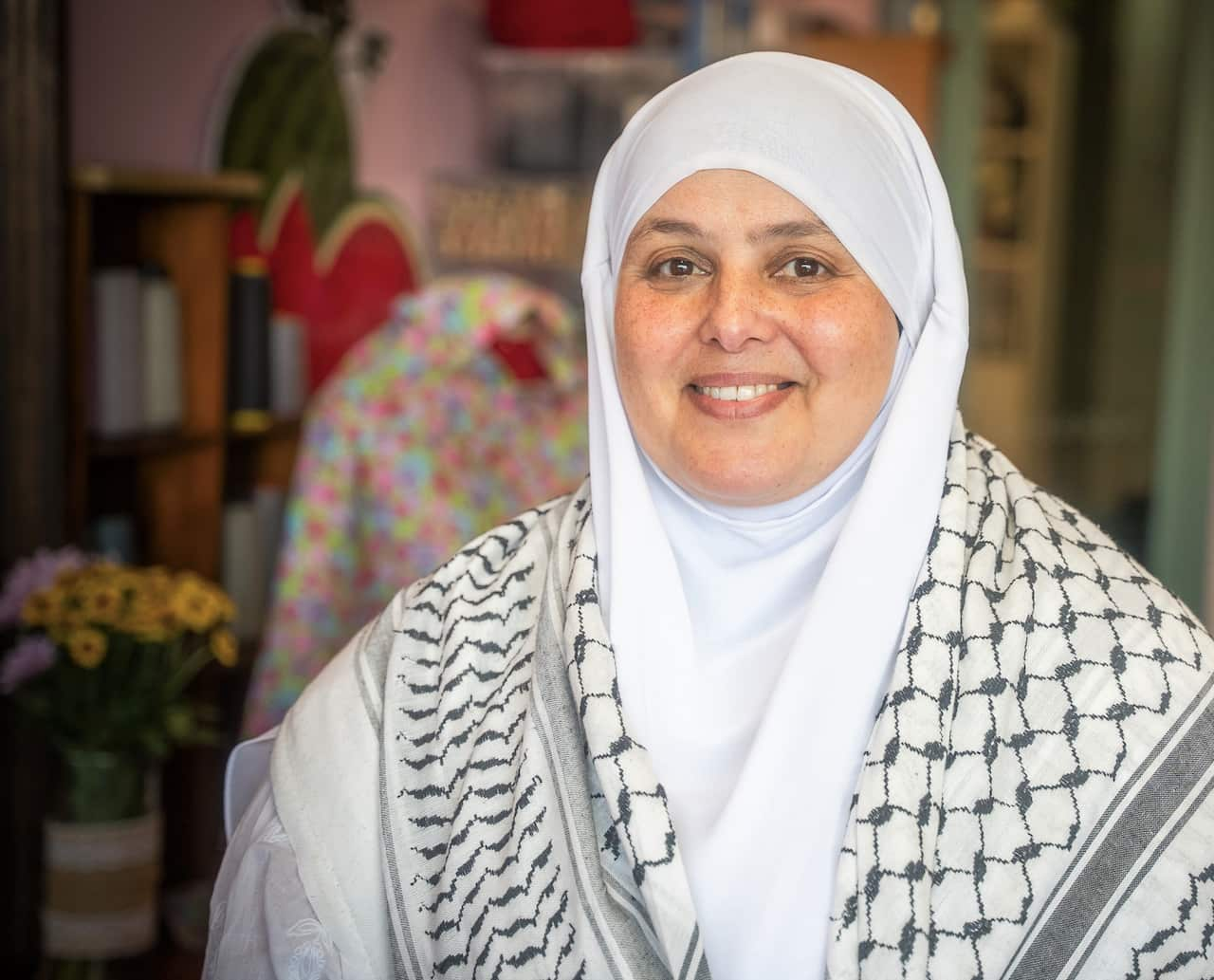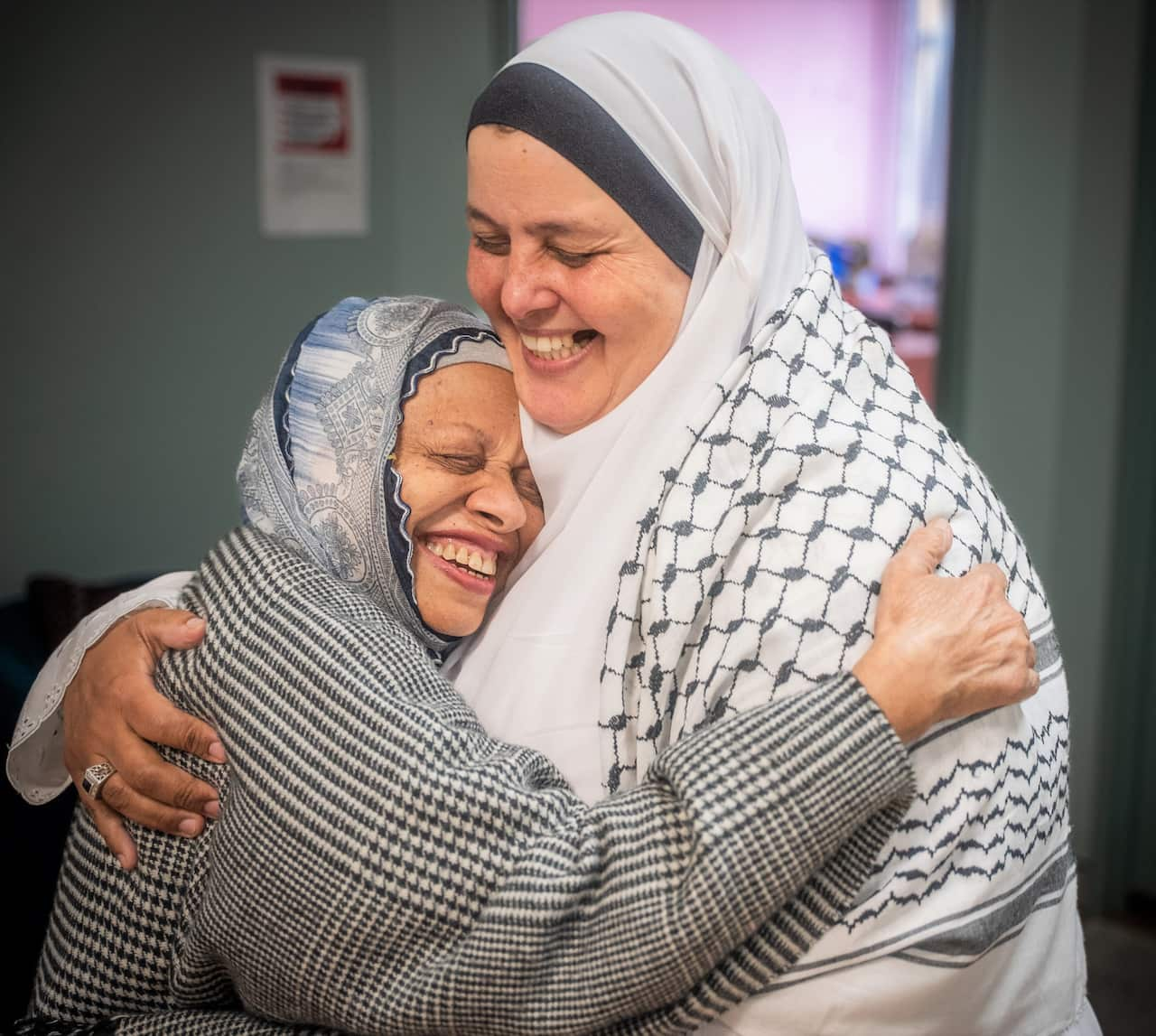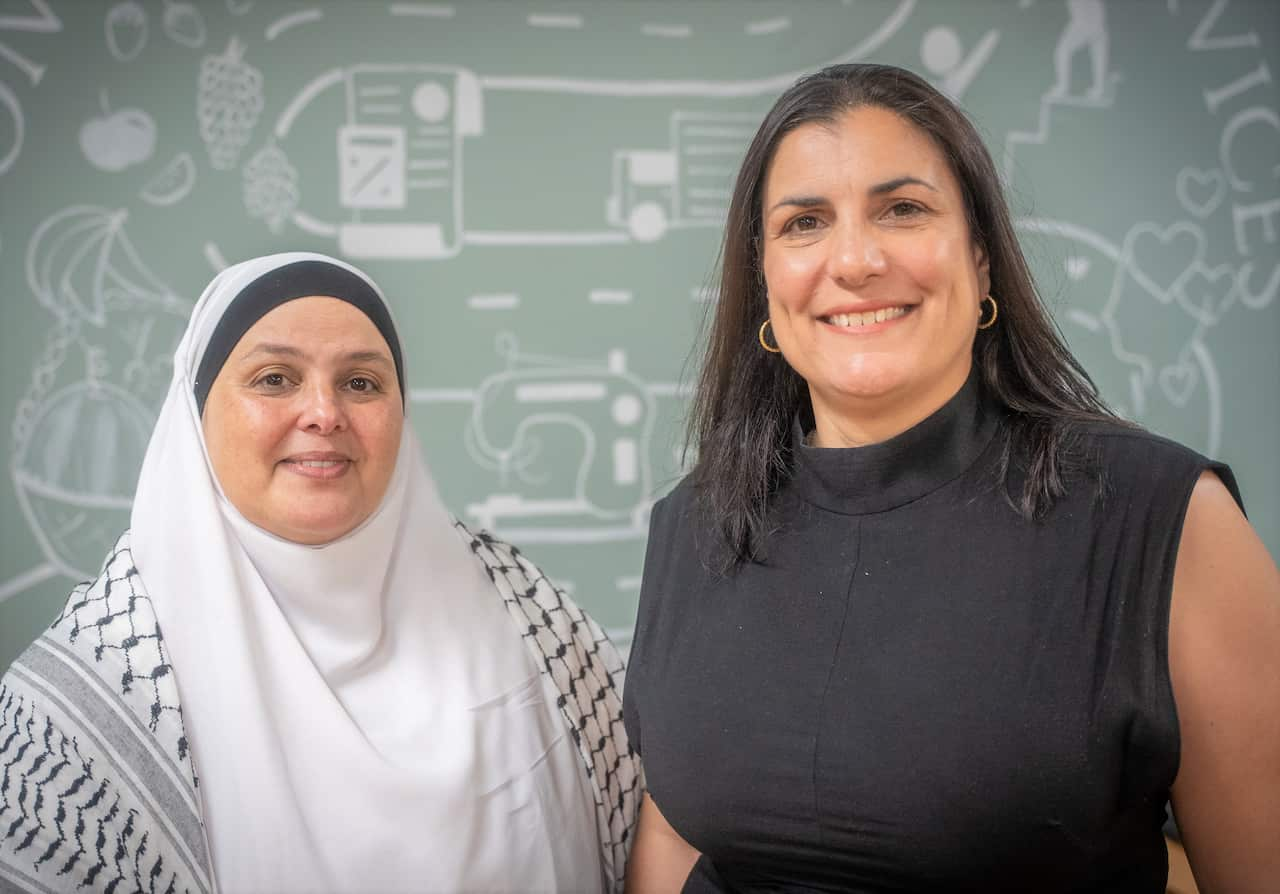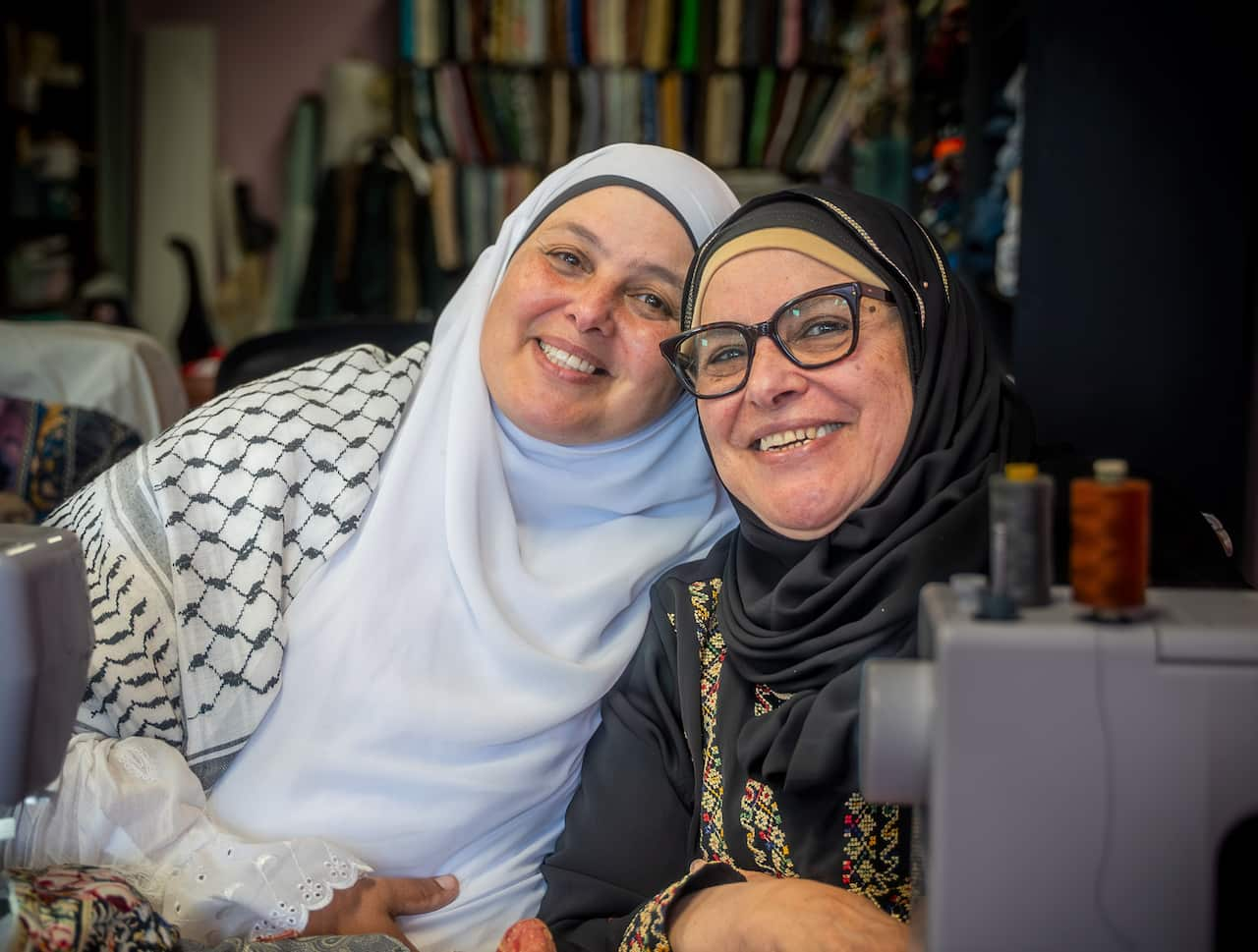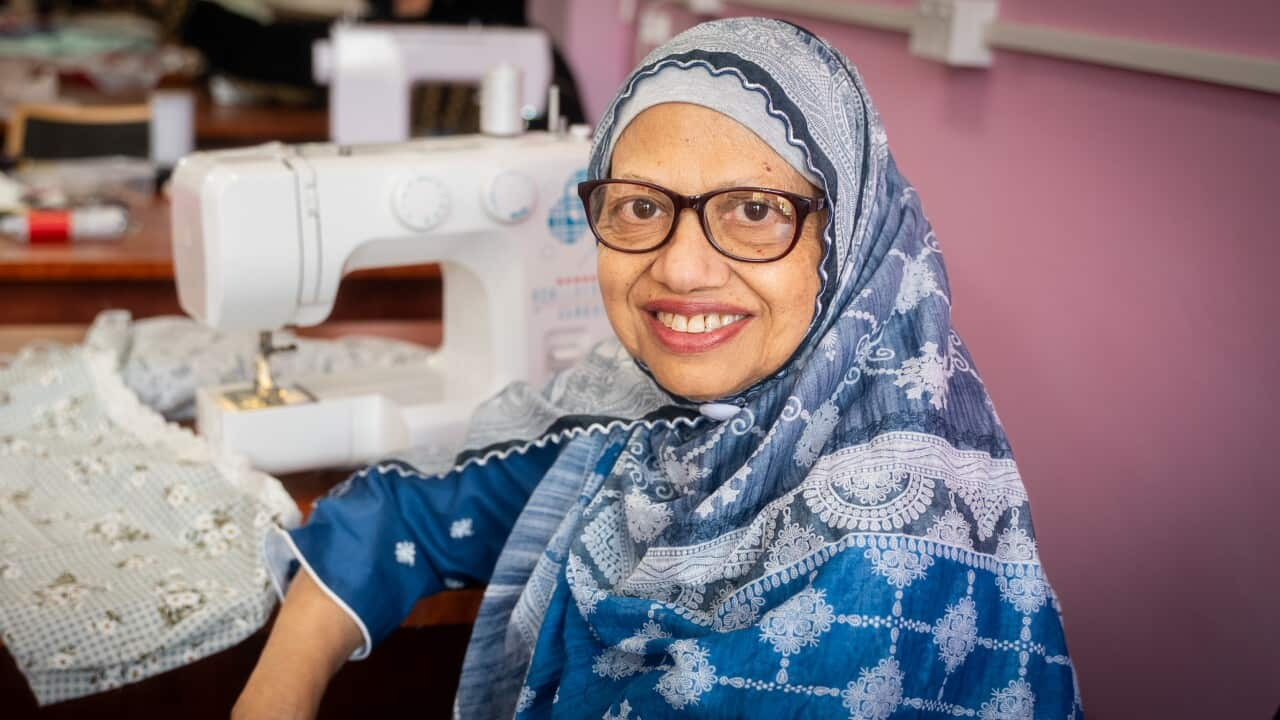The sewing machines are whirring in a small studio above a shop in Sydney’s west. A diverse group of women are crafting clothes, many celebrating the colours and styles of their cultures.
Among them, Masarrat Imam, who is making a tunic, or ‘Kurta,’ for her grandson based on traditional designs from her homeland, Pakistan.
“When I was growing up, my elder sister and my mother were always making dresses. Now, when I am making traditional clothes, I always remember my sister and Mum, and it’s a little bit emotional,” she says.
The sewing circle called Seamless has also transformed Imam’s life during a tough time.
Masarrat Imam on her wedding day. Source: Supplied / Masarrat Imam
Two years ago, her husband of almost 50 years passed away.
“After my husband died, I was very sad and emotional,” she says.
Around the same time, the 67-year-old was diagnosed with stomach cancer, which required surgery and intensive follow-up treatment.
“I had chemotherapy for six months afterwards, and it was a very, very difficult [time] for me.
“I was very tired. I didn’t want to talk to anyone. I didn’t want to go anywhere.”
Masarrat Imam at the sewing group in Sydney. Source: SBS / Spencer Austad
Through weekly meetings at Seamless in Sydney’s west, she says she found a sense of purpose, as well as connection and friendship.
“I am more confident and happier and I want to continue, to be more involved with the community and help with cooking and embroidery.”
Ms Imam is a community elder and affectionately knows as “auntie” by many in the Bankstown area.
Her progress is a source of great pride for sewing circle facilitator, Mona Mahamed.
“Masarrat has found herself in the sewing, which is really beautiful, and it’s really given her a lot of joy, especially after her husband passed away. It has filled her time and given her purpose,” Mahamed says.
Mona Mahamed, CEO and founder of Community Support Services Village. Source: SBS / Spencer Austad
Seamless is part of not-for-profit organisation Community Support Services Village, which Mahamed founded in 2018.
“We have women from different cultural backgrounds who don’t speak the same language. But they communicate through the sewing. It is a common language between them, which is really beautiful,” Mahamed says.
This connection is crucial, at a time loneliness is impacting many Australians.
In the latest Mental Health Monitor report, 40 per cent of 1,700 people surveyed reported poor or very poor mental health. That is up from 33.7 per cent in November last year.
Chris Gambian, Executive Director of Australians for Mental Health. Source: Supplied / Chris Gambian
“There’s no question that mental health in Australia is in crisis, I think that’s been true for a long time,” says Chris Gambian, Executive Director of Australians for Mental Health.
“When we asked people ‘do I have enough connection in my life and do I not feel lonely’ across all age ranges and demographics, 34.7 per cent said ‘no’.
“So, that is a huge number of people across Australia who say they don’t have enough connection.”
He says loneliness also contributes to lower mental health outcomes.
“For the people who describe themselves as having very poor mental health, 73 per cent say they do not have enough connection in their life and they do feel lonely.
“So, no question there is a correlation between loneliness and mental health,” Mr Gambian says.
Ms Mahamed also has lived experience with mental health issues and wants to speak about its impacts.
Mona Mahamed at her sewing workshop in Sydney. Source: SBS / Spencer Austad
“When you’re unwell mentally you feel alone,” she says.
“I’ve been living with PTSD and complex depression for almost 30 years now, and it’s important to advocate for that, because it is not shameful.”
In 2018, the mother of six decided to help others struggling with social isolation in her community.
“The beneficiaries are mostly vulnerable women who either have fled a domestic violence relationship or women refugees.
“We also have a lot of women aged over 55 , who we know can be at risk of homelessness,” she says.
By teaching basic business skills, Mahamed hopes to help participants toward financial independence.
Masarrat Imam (left) and Mona Mahamed. Source: SBS / Spencer Austad
“We help them get an ABN, we help them to write their invoices. Their first cheque is just so wonderful. Even though it’s not a hefty amount, it gets them to believe in themselves,” she says.
Spectrum Migrant Resource Centre in Melbourne also aims to address challenges facing new arrivals.
“Language barriers, communication barriers, a culture shock, wanting to adapt to a new environment can all be very difficult,” says team leader for social economic inclusion, Amona Hassab.
“Not having that access to extended family also contributes to feelings of isolation and loneliness,” Hassab says.
“So, sharing a meal together, sharing strategies on how to parent, having children play together in our playgroups are ways for migrants to meet and network and build that friendship.”
In Sydney, CSS has grown thanks to financial backing from independent groups including Sydney Community Foundation.
“We perform a piece of research every three years. It’s called the Portrait of Women and Girls in Sydney. And we know from that that 41 per cent of women earn $34,000 or less,” says CEO Loredana Fyffe.
“A lot of women [at CSS] are migrants who have not had jobs and traditionally have not worked.
“So, it is important to create employment pathways with skills that they come with that are unique and really valuable in our economy.”
Mona Mahamed (left) and Loredana Fyffe, CEO of Sydney Community Foundation. Source: SBS / Spencer Austad
To grow those economic pathways, Mahamed is already working with major Australian companies and hopes to do more.
“We have a partnership with a fashion brand and we are currently making about 300 bags a month, different styles, which is really beautiful. This provides an ethical pay for each of the women,” she says.
“We would like to extend that to more fashion partners to embrace our women’s stories through their unique designs that represent their culture and their identity.”
During the current cost of living crisis CSS Village is also reaching out to men.
Mona Mahamed and her mother, Hamida at Seamless. Source: SBS / Spencer Austad
“A lot of men have become homeless and they find it really difficult to navigate. So, they find our space very welcoming” she says.
“We offer men employment and training, whether in retail or administration. So it’s a win-win situation.”
Mahamed says supporting others has improved her own mental health.
“By helping people I started to feel good,” she says.
“So, join our village or grow your own, but whatever you do, don’t be alone.”
